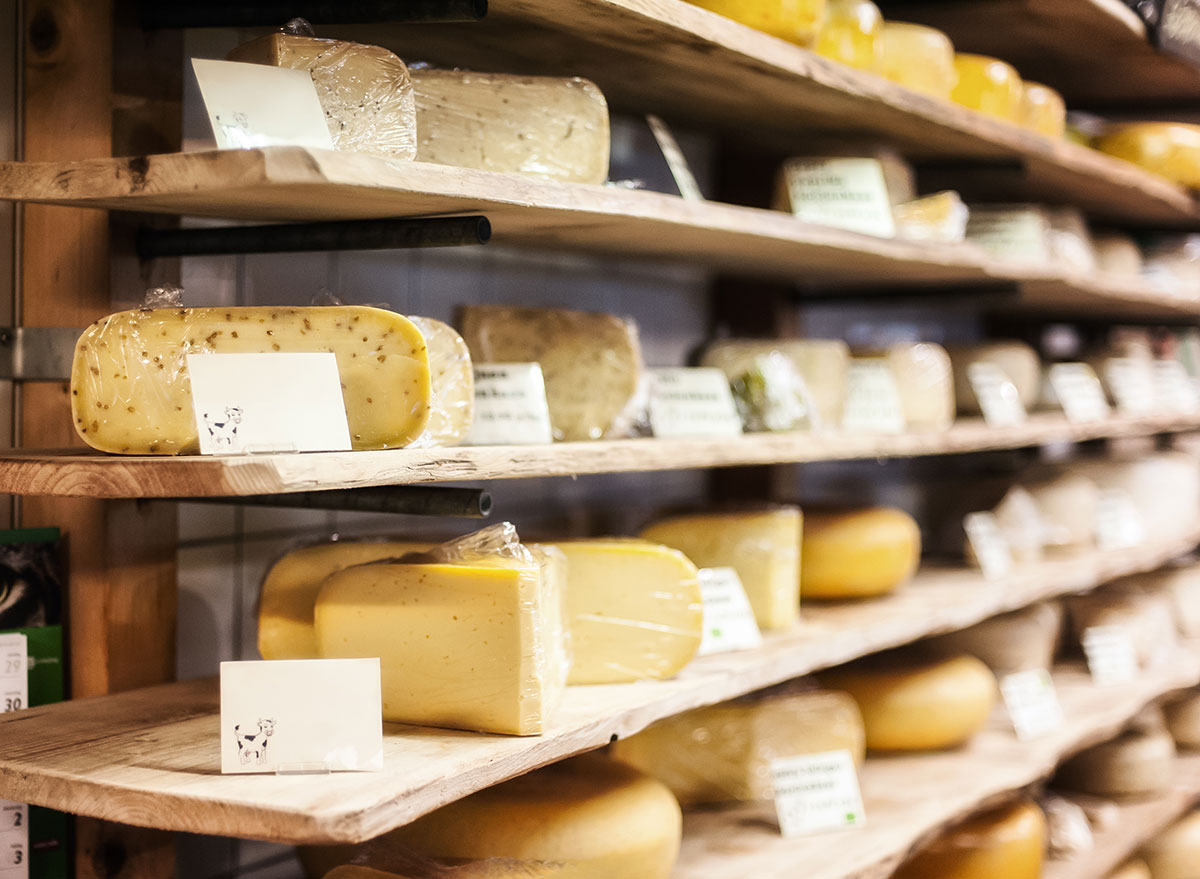This Is the “Most Dangerous” Cheese in the World, Say Experts

Many of us have called a cheese “dangerous” before, but we’re usually just talking about how deliciously tempting it is. (As in “Don’t let me get near the brie—it is dangerous.”) We don’t normally mean that the cheese could literally harm us, but that’s exactly what could happen with this traditional Italian cheese. Casu marzu holds the Guinness World Record for “most dangerous cheese,” because it’s crawling with maggots that could eat away at your intestines.
This sheep’s milk cheese from Sardinia contains, you read that right, maggots, which are born into the cheese after a type of fly known as the “cheese skipper” lays its eggs in the cheese’s small cracks, according to CNN. As the maggots that hatch from these eggs move through the cheese, which is usually a firm pecorino, they break down the proteins into a creamy spread.
RELATED: 7 New Fast-Food Chicken Sandwiches Everyone Is Talking About
To enjoy this maggot-digested cheese, a cheesemonger breaks the cheese open at the top and extracts the creamy casu marzu, at which point, the maggots can still be seen crawling in it.
Shocking, sure, but not necessarily dangerous, right? Well, some theorize that it’s technically possible that the maggots could stay alive throughout the process of eating, and could infest your insides, biting little holes into your intestine—a condition called myiasis. There’s no recorded case of this ever happening, but it might be possible, and as such, the sales or purchases of the cheese are now illegal.
Still, many of the residents of Sardinia happily eat casu marzu, either blending the maggots into the cheese with a centrifuge or eating the writhing mass as-is. Locals say that the region’s tradition of eating creepy crawlers dates back to antiquity, and that the world’s most dangerous cheese is an important part of their heritage.
Feeling put off? You could find several worse things in your food order closer to home—check out these 40 Grossest Things Found In Food.
Don’t forget to sign up for our newsletter to get the latest restaurant news delivered straight to your inbox.








